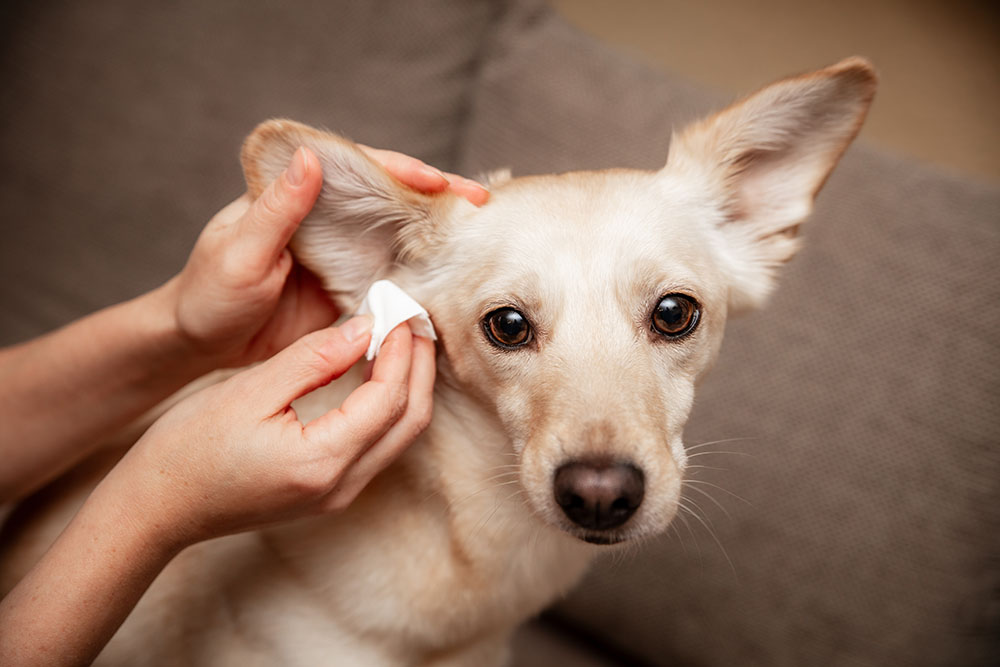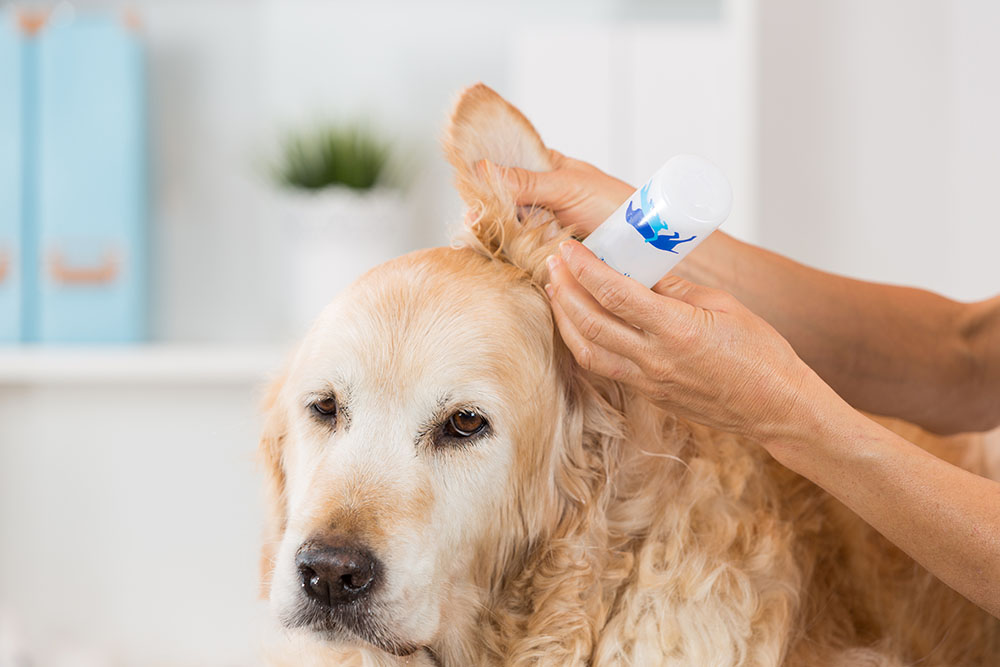Dog Ear Infections: Causes, Symptoms, and Prevention
If your dog is constantly scratching, shaking their head, or pulling away when touched near the ears, it’s often a sign of discomfort that could point to an ear infection. At Midtown Veterinary Hospital in Rochester, NY, we see these cases regularly and understand how stressful they can be for both dogs and their families.
Whether it’s a first-time issue or part of an ongoing pattern linked to allergies or underlying conditions, timely treatment makes a big difference. Here’s what to look for—and how early intervention can help prevent more serious complications.
What Is an Ear Infection?
Ear infections in dogs—medically known as otitis externa—are caused by inflammation of the external ear canal. This inflammation can be triggered by several factors, and because of the L-shape of a dog’s ear canal, moisture and debris are easily trapped, creating an ideal environment for infection.
Common Causes of Ear Infections
Several factors may contribute to ear infections in dogs:
- Allergies: Environmental and food sensitivities often trigger inflammation. Learn more about symptoms and treatment.
- Ear mites or parasites: These can cause itching and secondary infections.
- Excessive moisture: Swimming or frequent bathing can create ideal conditions for bacteria and yeast.
- Excessive hair or ear anatomy: Dogs with narrow or floppy ear canals are more at risk.
- Foreign objects: While less common in upstate New York, foxtails and other debris can still pose a risk, especially after time outdoors. Read more about foxtail risks.
Why Prompt Treatment Matters
Ear infections don’t typically resolve on their own. Left untreated, they can progress into more serious conditions involving the middle or inner ear, and may lead to:
- Chronic inflammation and scarring
- Painful aural hematomas from head shaking
- Hearing loss
- Facial nerve damage or neurological symptoms
- In severe or unmanageable cases, Total Ear Canal Ablation (TECA) surgery
Recognizing the Signs
Identifying an ear infection early makes treatment easier and more effective. Symptoms to watch for include:
- Frequent head shaking or ear scratching
- Redness or heat around the ear flap or canal
- Foul-smelling discharge (yellow, brown, or black)
- Sensitivity or pain when the ears are touched
- Head tilt, balance issues, or changes in behavior (in advanced cases)
This guide offers a closer look at ear exams and treatment.
How We Diagnose Ear Infections
When you bring your dog to Midtown Veterinary Hospital, we perform a complete ear health assessment tailored to their condition. This typically includes:
- Otoscopic exam to examine the ear canal and eardrum
- Cytology to identify yeast, bacteria, or mites under a microscope
- Culture and sensitivity testing in chronic or non-responsive cases
- Allergy testing, including food trials when appropriate—learn how diet can play a role
Explore our diagnostic services to see how we support your pet’s care.
Treatment Options
Treatment depends on the type and severity of the infection:
- Veterinary ear cleaning to remove debris and wax buildup—here’s how to clean ears safely
- Topical medications like antibiotics, antifungals, or anti-inflammatories
- Oral medications when infection has spread or symptoms are severe
- Allergy management, which may include food trials, environmental changes, or medication
Our team will guide you through your dog’s personalized treatment plan.
Recurring Infections: What to Consider
Recurring ear infections typically point to an unresolved root cause. We look for:
- Ongoing allergies (food or environmental)
- Incomplete treatment from past infections
- Breed-specific ear anatomy
- Improper or overzealous ear cleaning
- Exposure to moisture or environmental irritants
Identifying and addressing the source is key to long-term relief.
At-Home Prevention Tips
Here’s how to help prevent future infections:
- Clean ears regularly—but not excessively. Overcleaning can lead to irritation.
- Dry ears thoroughly after baths or swims.
- Use only vet-recommended cleaning products—avoid alcohol or peroxide.
- Watch for seasonal changes or signs of allergies.
- Optimize your dog’s nutrition—see how it supports skin and ear health
Before Your Visit
To help us provide the most effective care, we recommend bringing:
- A record of your dog’s symptoms, including when they began
- Photos or videos of behavior at home
- A list of medications and supplements
- Information about recent diet changes or environmental exposures

Frequently Asked Questions
Q: How often should I clean my dog’s ears?
A: It depends on your dog’s ear structure, activity level, and health history. Some need cleaning weekly; others only occasionally.
Q: Are ear infections contagious?
A: Most are not, but ear mites can spread between pets.
Q: Can I use over-the-counter drops?
A: No—many can worsen the issue. Always use medications prescribed by your vet.
We’re Here to Help
At Midtown Veterinary Hospital, we understand how stressful it can be when your dog is in pain. Whether you’re managing chronic infections or noticing the first signs of discomfort, we’re here to help you find answers and relief.





Leave A Comment